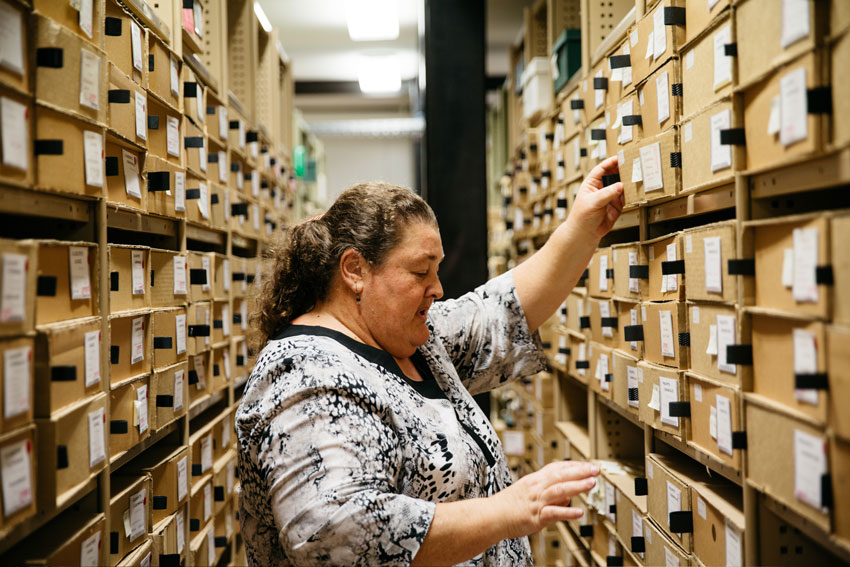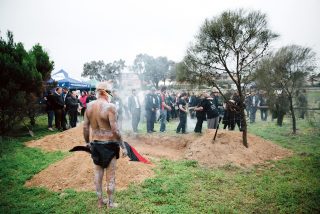
Walter Marsh
Walter is a writer and editor living on Kaurna Country.
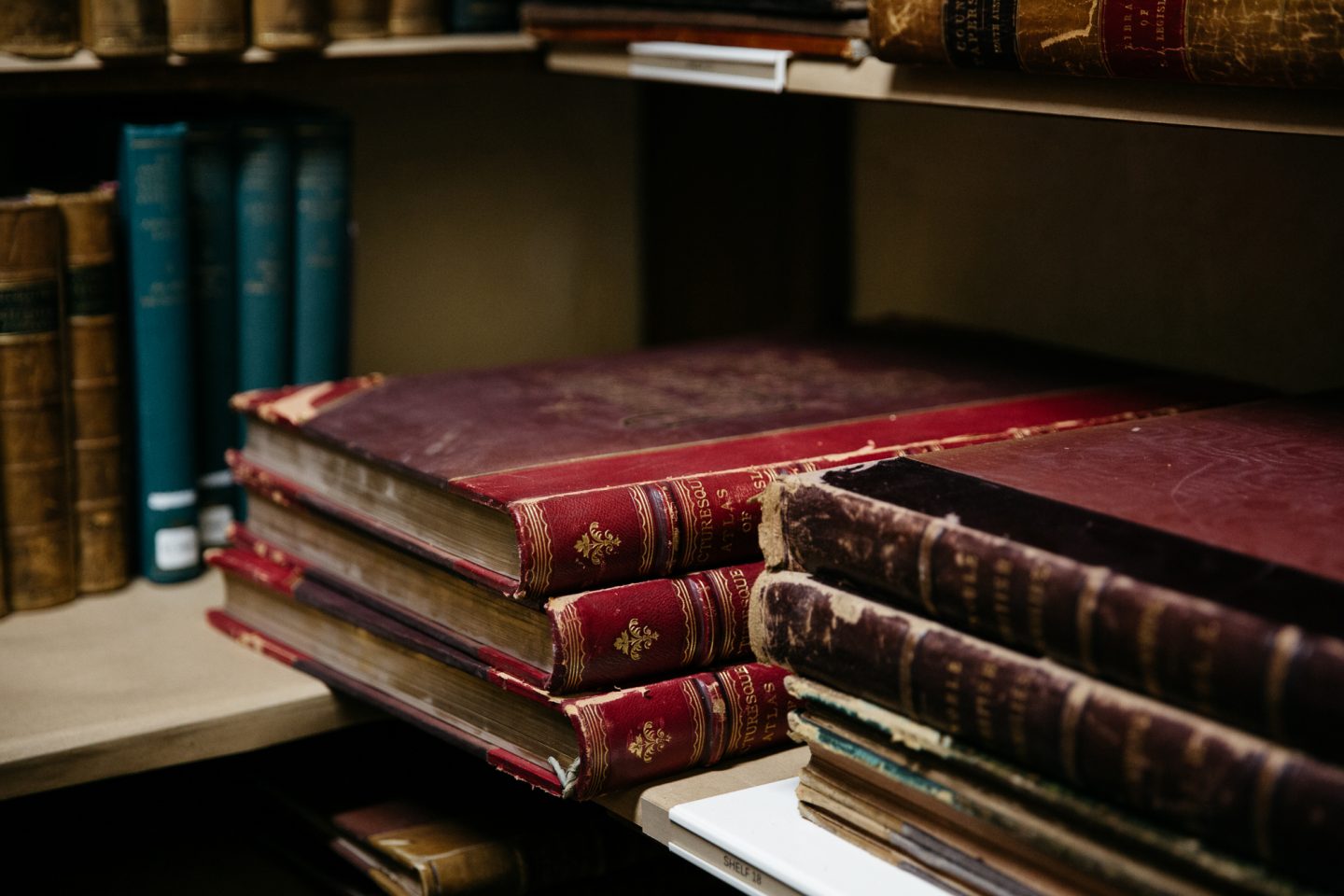
Hidden among South Australia’s halls of power, this 166-year-old institution is no ordinary library.
“Every time I go in the vault, I find something else I didn’t know we had,” Dr John Weste tells The Adelaide Review. Secreted away behind the chambers of Parliament House, these vaults house everything from rare books to sweat and tea-stained building plans. “The material we’ve got in there, people say ‘why have you got this?’. I have no idea, but I’m so glad that we do. We’ve got items which as far as I can tell are the only copies in Australia.”
Despite being South Australia’s Parliamentary Librarian, one of the first things Weste points out is that he is not, in fact, a librarian. And unlike the average library, Weste’s domain has a very particular mission.
“The library is what’s called a special library, so we have a very narrowly and specific role. In our case, to provide support to Members of Parliament and their staff in the context of their parliamentary duties,” he explains.
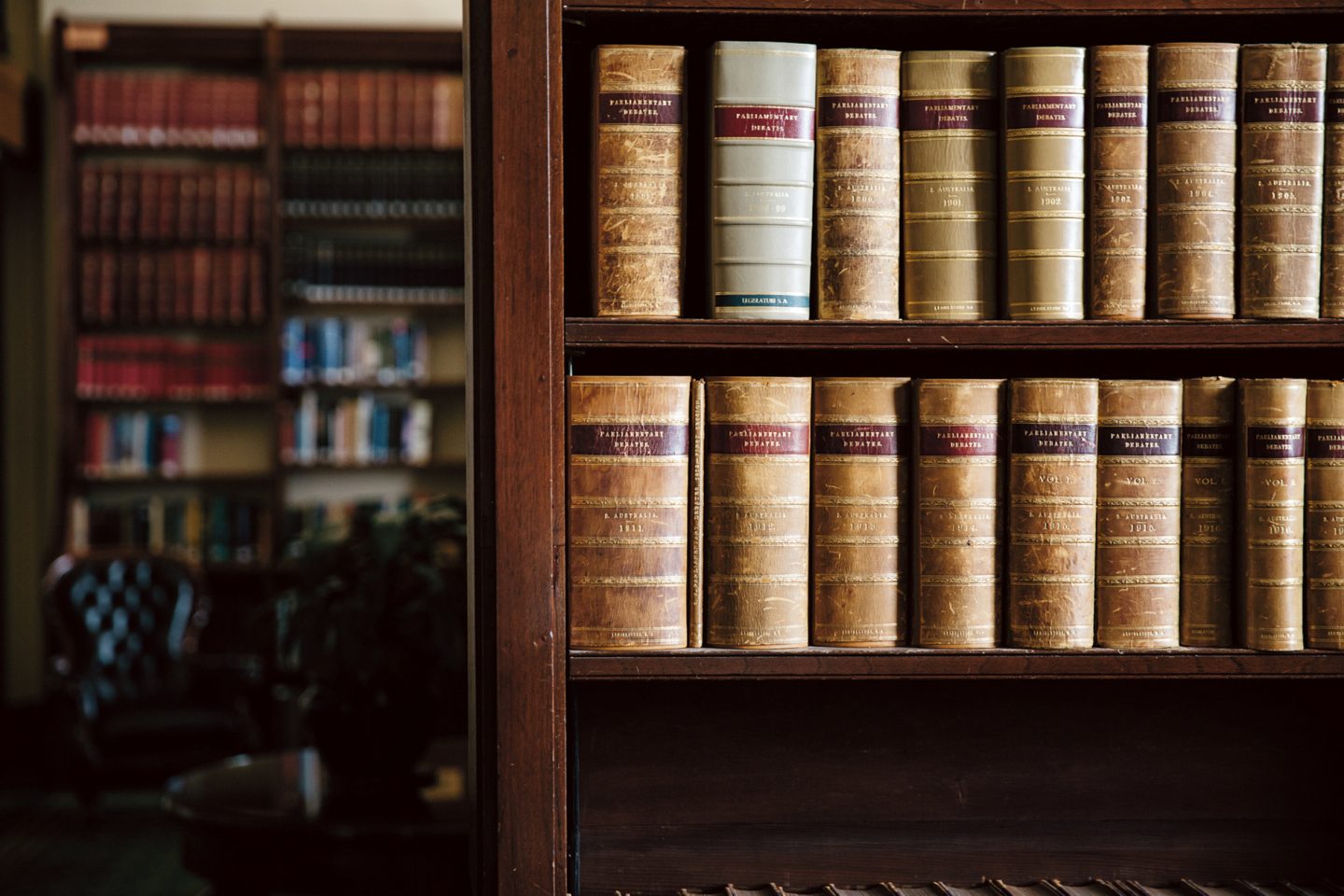
The library was established in the early 1850s by George Strickland Kingston, colonial architect, MP and one-time assistant to Colonel Light. “In those days the library was basically books – I found an order form from 1854 the other day,” Weste says. Despite having its origins as far back as 1834, the collection that became the State Library down North Terrace wouldn’t find a permanent home until 1861.
Today Weste, a former Japanese history lecturer, and his team perform day-to-day research and media monitoring for current Members, while also looking after an eclectic collection that spans rare books of art and literature to political material, parliamentary dinner menus and a hunting rifle casually displayed over a door.
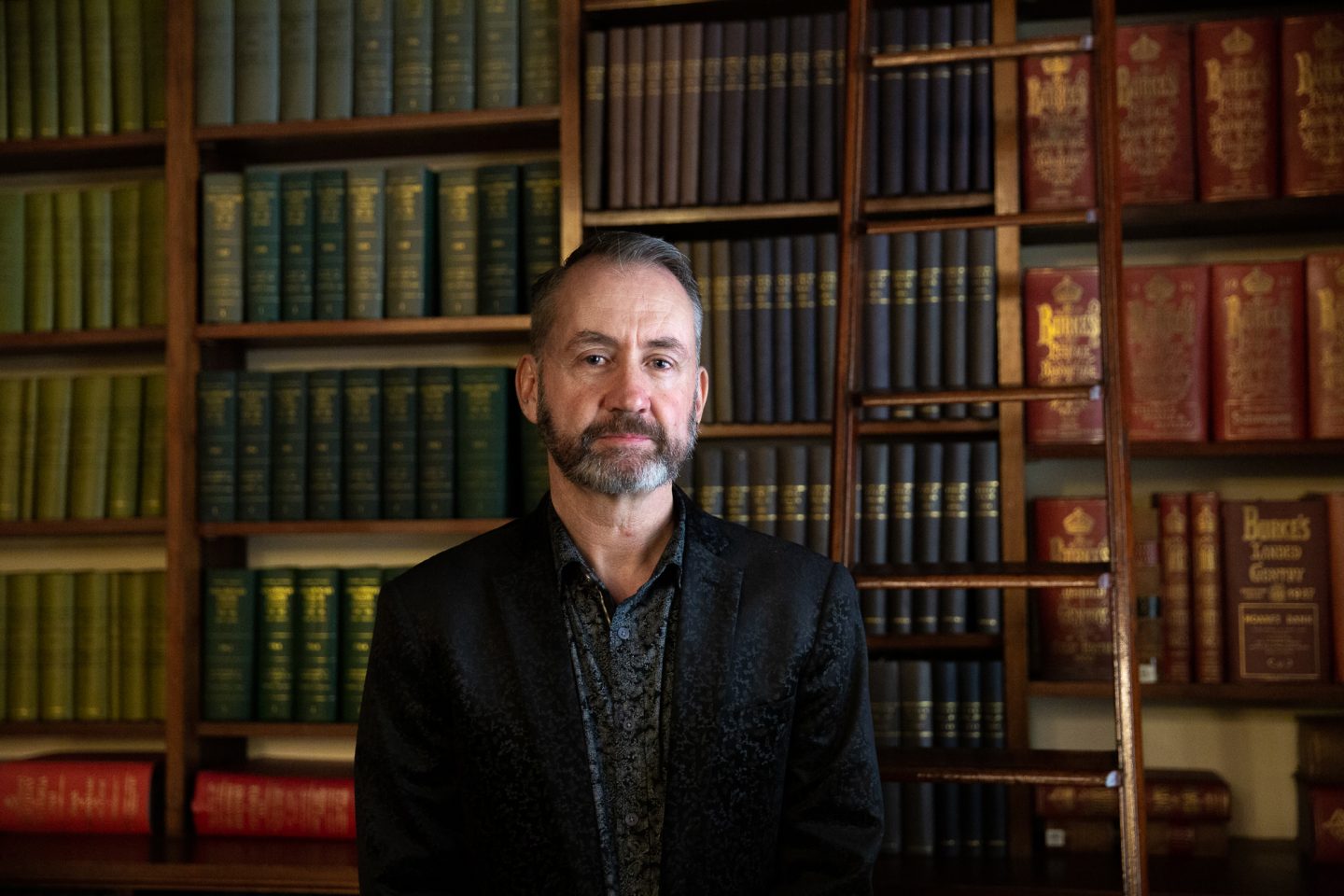
But as the shape and makeup of South Australia, and its Parliament, have changed, so have the priorities of its library. “Because our collection goes back so far and is so eclectic, it’s kind of like an archaeological dig to go through,” he says. “It’s interesting to look through the library’s older collection. Up to a certain point there are lots of biographies of British Members of Parliament, and then in the 1970s that changes to American Congressmen and Senators. There’s a shift in Australia, moving away from Britain and towards the United States.

“Member’s ethnicities and cultural backgrounds [also] change, and the material reflects that. One-hundred to 80 years ago you wouldn’t have looked towards Asia, with the ‘Yellow Peril’ and ‘White Australia Policy’, the focus was more Euro-centric,” he says. “Today it shifts to other regions – South East Asia, India, China and Japan are all important.”
Although its collection reaches back into the earliest days of colonial South Australia, today it pursues far more cutting-edge forms of information. “Historically it was basically books, reading material and things like that – today it’s very different.”
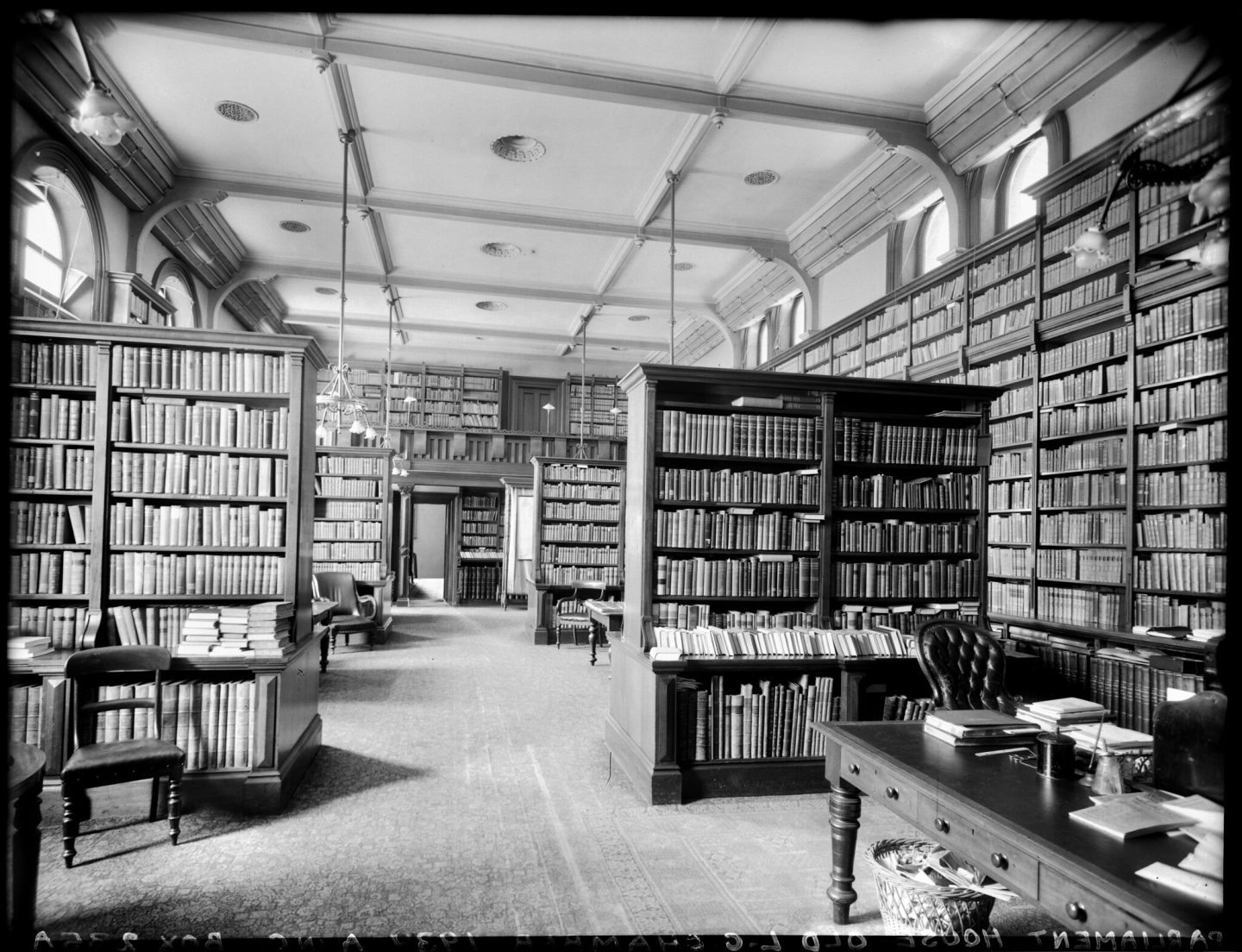
“The first computer in the parliament was bought by the library, and the Parliamentary Librarian who ordered it told me that when it arrived he opened the box and thought ‘I have to retire’,” Weste recalls. “Now our collection is around 600,000 items, but of that about 90 per cent is purely digital. The shelves all look grand and nice, but it’s such a small part of it.”
Even the old electoral maps that line the walls of the library have cutting edge equivalents. “We’re also moving into interactive datasets, we’ve started a geo-spatial information mapping system, also using business intelligence with interactive data to help people drill down into data a bit more.”

While the library has for many years been quietly dedicated to serving the needs of MPs and their staff, in recent years Weste has opened up the library to tour groups and visitors. “Most of Adelaide does not know this exists,” he says.
“We’ve really put a lot into putting things up and giving people, and members a reason to come through. And we’ve got all this beautiful material – people should be able to see it.”
When it comes to borrowing, however, the library remains Members-only.
South Australian Parliament Research Library
Parliament House, Adelaide
Facebook
parliament.sa.gov.au

Walter is a writer and editor living on Kaurna Country.
